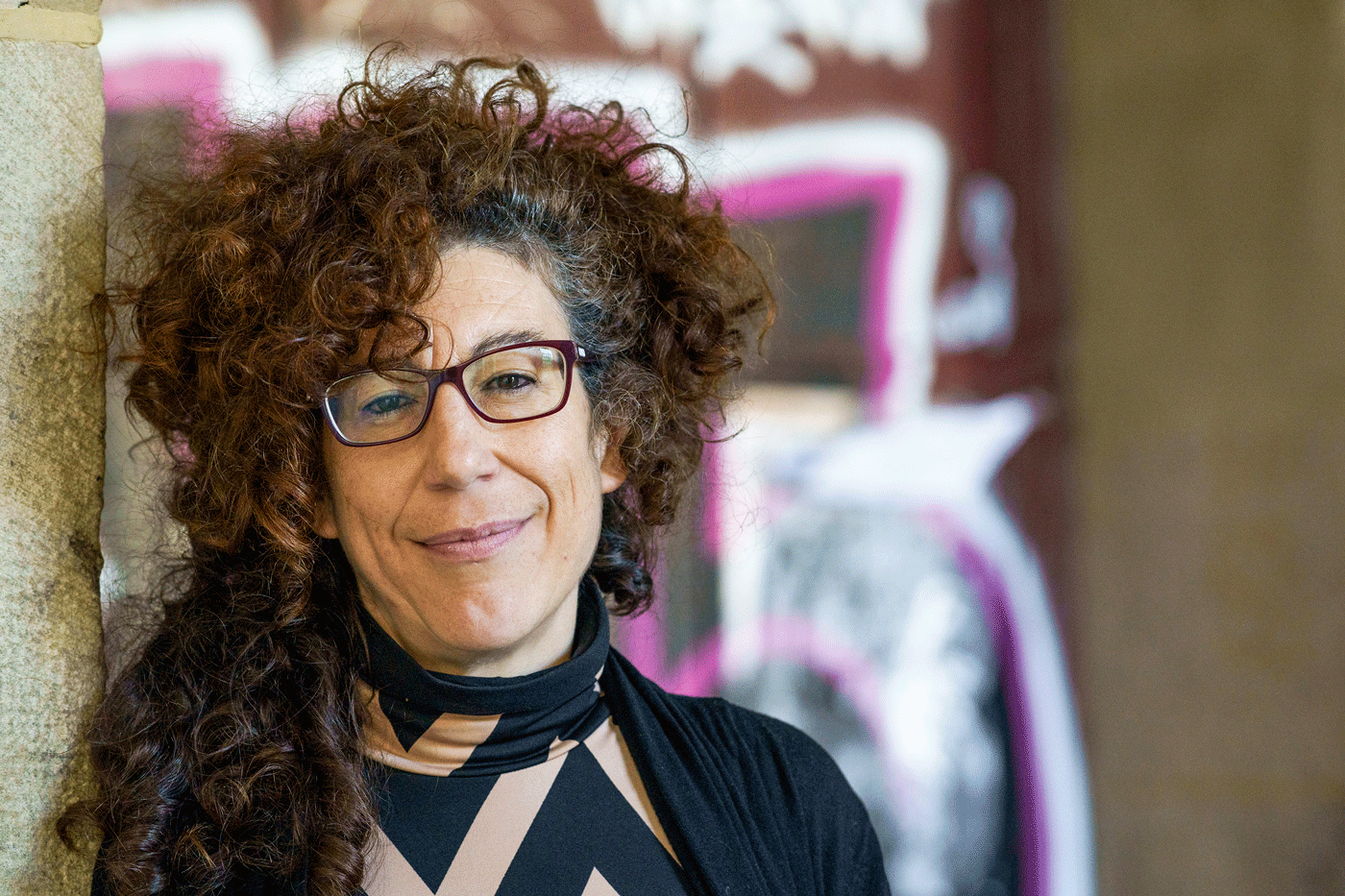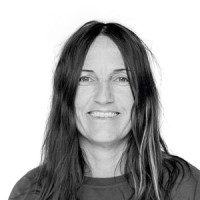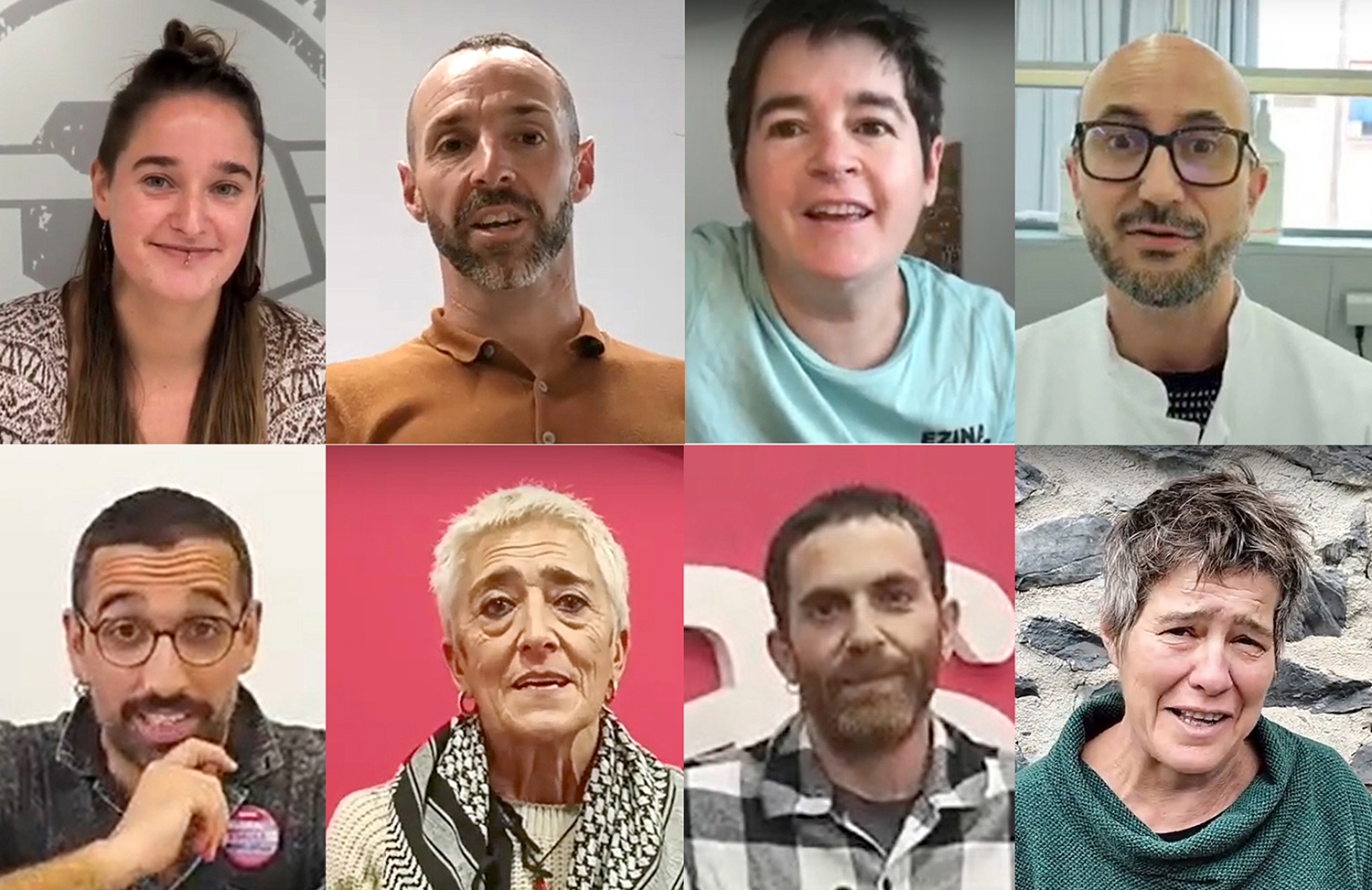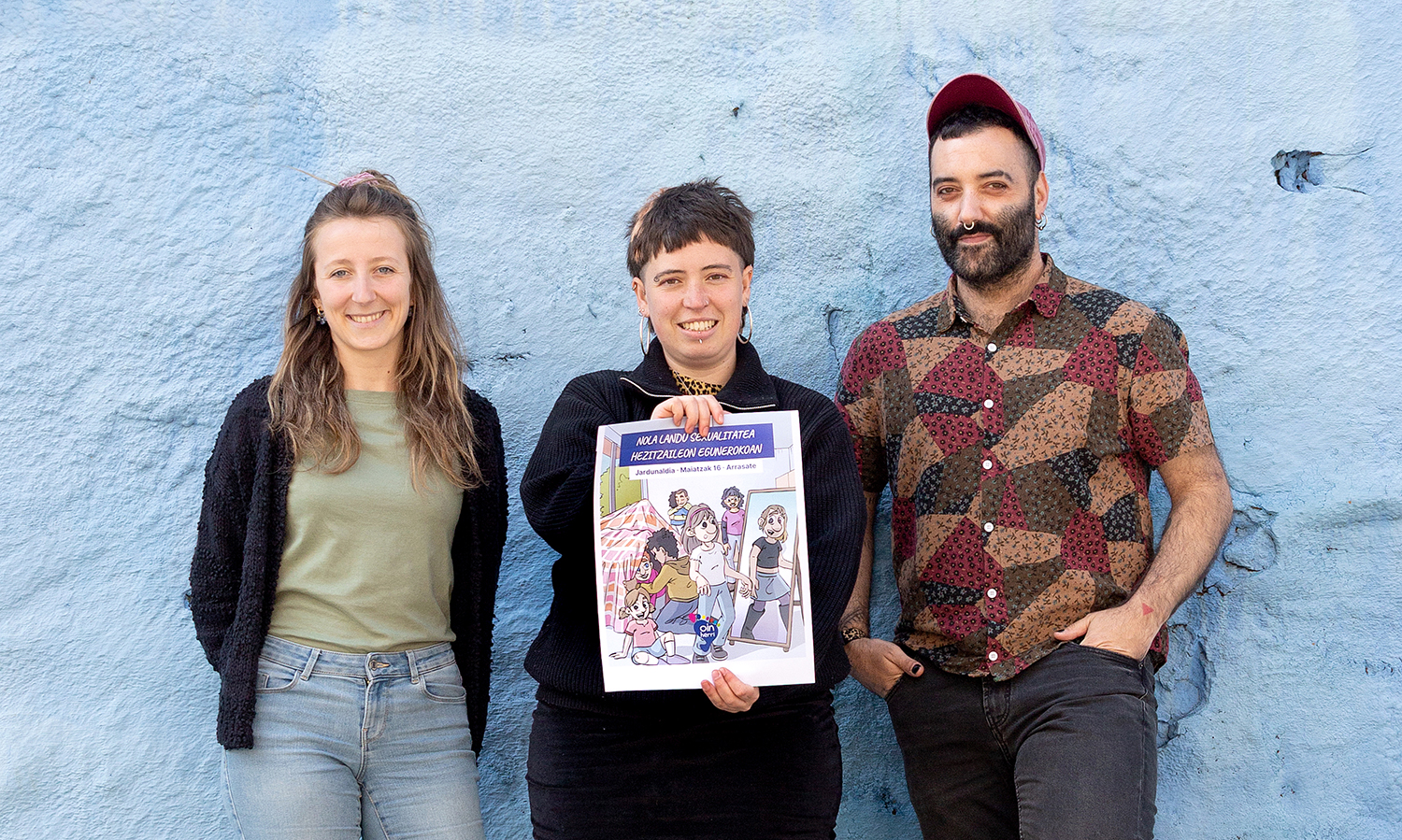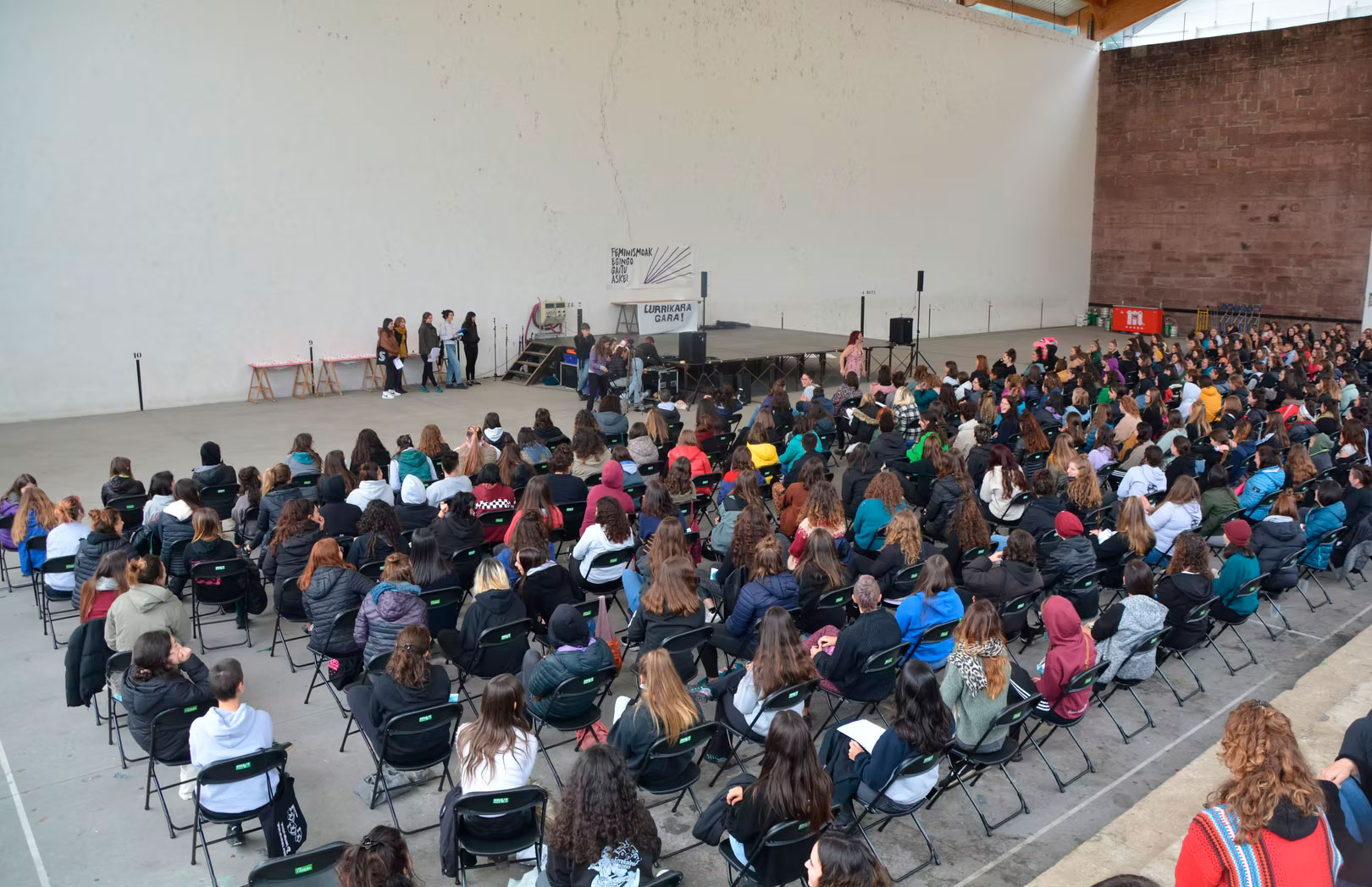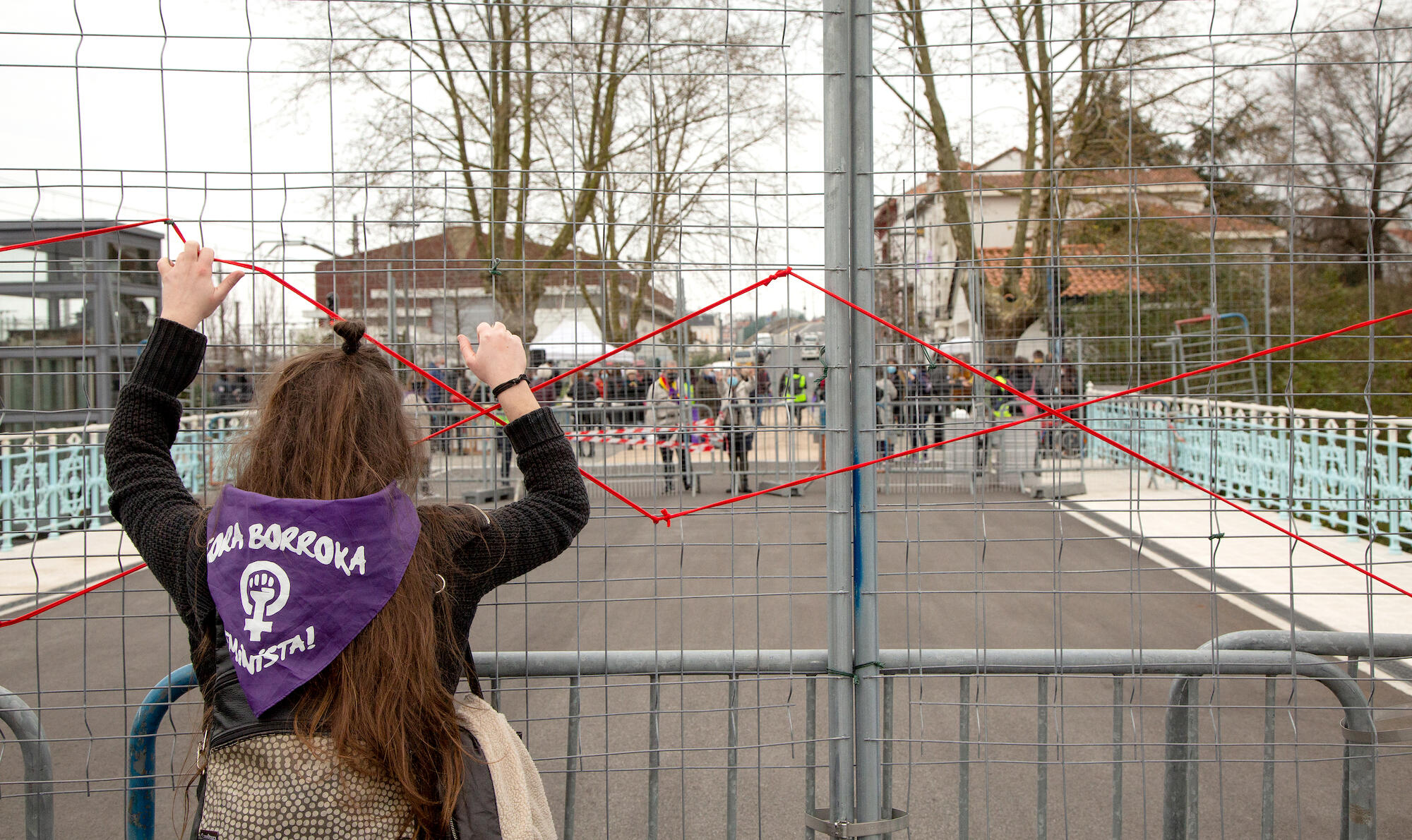"Cities have gender and can reduce inequalities by changing policies"
- Laura Pérez (Barcelona, 1982) studied journalism and international cooperation. He has worked on strategies for the development of tourism in Peru and Bolivia, the development of the economic and political rights of women in Ecuador and the elimination of sexual violence in El Salvador. She is currently a member of Life Cycles, Feminisms and LGTBI at the City Council of Barcelona.

Among the innovations brought by the Government of Ada Colau is the position of councillor of feminism. How did it happen?
My department is a pre-election issue. With the creation of the Barcelona platform in Comú, we created the axis of feminisms to deal with the issues that today we work in the Barcelona City Hall. And, of course, when we defined the government departments, it was very clear that we had to emphasize feminist policy and that sexual and gender diversity had to be the main function in Barcelona.
You wanted to reinforce the concept of “feminisms”, above women or gender. Why?
On the one hand, we found it strong to claim the feminist struggle, and on the other, we saw that it was the opportunity and the time to pay tribute to the heritage of feminism that we have drunk the people who form the government. We didn't want to create the women's section, singular. We thought it was a qualitative leap to talk about feminisms.
What diagnosis do you make of gender equality today?
We have to be positive. Much progress has been made thanks to the struggle of many women. Of course, much remains to be done. There is 25% wage inequality and violence takes the daily agenda, not only in couples, but also in the street and at work. And that's an obvious difference. But it is essential to resume the achievements in order to keep fighting.
Public space is historically designed for men. How can it be feminized?
Cities have gender, as policies have gender. And inequalities can be reduced by changing urban policies. It is essential that housing and urban planning have a feminist view, since these small changes make it impossible to build a city with a gender perspective.
What is the contribution of the institutions to equality?
This is a fight between David and Goliath. The institutions have a lot to do, but the interests of the markets are stronger for today. And markets are perpetuating a binary system, giving girls the responsibility of caregivers since childhood, and boys the responsibility of struggle, struggle and heroes. It is cruel, children and young people are emerging and they still have no criteria for differentiating things.
How can campaigns like Get Heard influence society?
Finally, this campaign has reinforced the rejection of homophobia, rather than the message itself. It is true that there was a great explosion in the media, and so they have been strengthened free of charge. Above all, however, the explosion has taken place against the association, which has been arrested. With this campaign, however, we have lost the opportunity to encourage further reflection. We must not forget that in textbooks you can find the same message as in the bus, and yet you do not see that answer. We should go to the root of the problem.
Barcelona has for the first time created a protocol of action against feminicides, which can affect women. What does it consist of?
It is a tool that we have created together with the associations of the city to respond to the old demand of the feminist movement of Barcelona. Unfortunately, we have already used it several times. Through the protocol against femicides we have created a new tool that explains how the City Hall should act when a woman is murdered in Barcelona. However, Machista violence is not only murderous, it is the tip of the iceberg that begins to attack on the street and, I insist, we should also go to the root of the problem.
The Catalan capital has for the first time a feminist woman at the head of a delegation from the Generalitat. She's just been a mother. Is this a new way of making policy?
Ada Colau has a track record full of determination and that has meant that what we do in Barcelona has an international projection. It is a very important value that the mayor of Barcelona, in addition to being a woman, should be a feminist. Because Madrid, for example, had already had an Mayor before Manuela Carmena, but the policies were different...
What are the major challenges for the future?
The main challenge of my department is the economy of healing. We have been working on this for some time, but it is difficult for the work to materialise. However, I believe that the work of the two years that we have left to complete the legislature will go that way. On the other hand, our goal will be to develop the new laws that we have created so far and that the feminist look is placed in all spaces of the City Hall and the city.
“Gogotsu iritsi nintzen Bartzelonako Udalaren Feminismoen zinegotzi kargura, gauza asko egiteko asmoz eta ilusioz. Eta halaxe jarraitzen dut. Duela gutxi topaketa bat egin genuen Galizia, Iruñea, Madril eta Espainiako hainbat txokotako hirietako ordezkariekin. Halakoetan konturatu izan naiz zeinen zaila den Bartzelonan oinordetzat hartu dugun erakunde patriarkal eta hierarkikoari buelta ematea. Hala ere pozik nago, gauza asko lortu dugu eta han eta hemen aitortu digute”.
I have had days of visits, experiences and reflections. There I am, trying to make intersectionality a reality, trying to connect struggles, trying to say all the points as bertsolaris, without pounding...
From the community radio station LoRa where I work, we organized a round... [+]
Sare sozialetako argitalpen baten bidez, otsailaren 23an, Ane Santesteban txirrindulariak (Errenteria, Gipuzkoa, 1990) endometriosia daukala iragarri zuen. Diagnostikoak lagundu egin dio ulertzen zergatik batzuetan gaizki sentitzen den bizikletan: “Kisteak aldaka okertzea... [+]
Errepikatu nirekin: Sara Millerey. Ez dezagun ahaztu bere izena. Transfeminizidioaren biktima da Millerey: gorrototzaile transmisogino batek torturatu zuen, besoak moztu zizkion eta bizirik bota zuen ibaiertz batera. Bi orduko agoniaren ondoren hil zen.
Errazagoa da J.K... [+]
Many Basque feminists have been disappointed to learn that writer Chimamanda Ngozi Adichie has externalized pregnancy, meaning that a surrogate has fertilized her baby for money.Adichie is the author of the essay We should all be feminists, among others. They have ignored the... [+]











